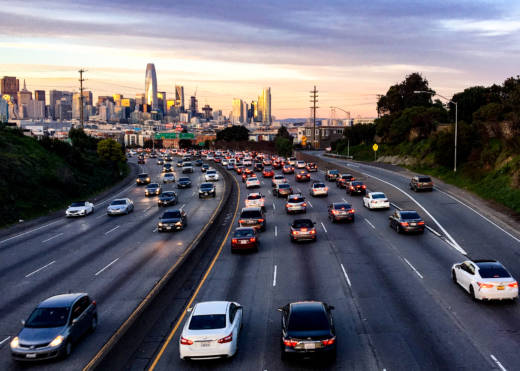Some 34 percent of respondents suggested they'd pay $6 or more to get congestion out of their lives. Some 4 percent of respondents -- probably the people in my East Bay flatlands neighborhood spending $1.5 million and up for two-bedroom bungalows -- expressed a willingness to pay $51 or more for a traffic-free existence.
Jim Wunderman, president and CEO of the Bay Area Council, said that given the Bay Area's long history of passing "self-help" tax measures to fund the region's large-scale transportation needs, he didn't find the readiness to pay something to ease the pain of gridlock too surprising.
"People in the Bay Area -- they know a problem when they see it, and they’re willing to pay more in order to fix that problem," Wunderman said in an interview Monday.
That’s a belief that will be put to the test as voters cast ballots on Regional Measure 3, the bridge toll proposal that voters have been casting ballots on for the past month. The measure would increase tolls on the region's seven state-owned bridges to raise $4.5 billion over the next 25 years for three dozen major transit and highway investment. Tolls would go up in three $1 steps, with automotive tolls on most bridges reaching $8 on Jan. 1, 2025; the top toll on the Bay Bridge would be $9, charged during weekday commute hours.
The Bay Area Council -- a business and development policy group that includes most of the region's major companies as well as some transit agencies, local utilities, universities and media companies (though not KQED) -- is an architect and major backer of the proposal.
Wunderman said that although Regional Measure 3 has drawn support from hundreds of local elected officials, from major newspapers and transportation advocates, the vote could be close.
"I think the measure passes muster with the people who think about transportation policy," Wunderman said. "The voters are another question. As I voted, you get to this thing on the ballot called Regional Measure 3. If you're not prepared for it and you haven't heard much about it, what you see is that it's an increase in the bridge tolls, and people are reluctant. So I don't think it's a big winner. ... How will people vote? I hope wisdom proves in our favor. We'll see."
Among the poll's other findings:
- 68 percent of those surveyed said their primary mode of transportation was driving alone. The next two highest modes: 8 percent said they carpool, and 7 percent said they take BART.
- 66 percent of respondents said they believe government and public agencies should play the lead role in improving traffic and transportation in the Bay Area.
- 42 percent said housing, including cost and affordability issues, was their top concern. Traffic and congestion came in second, with 18 percent.
